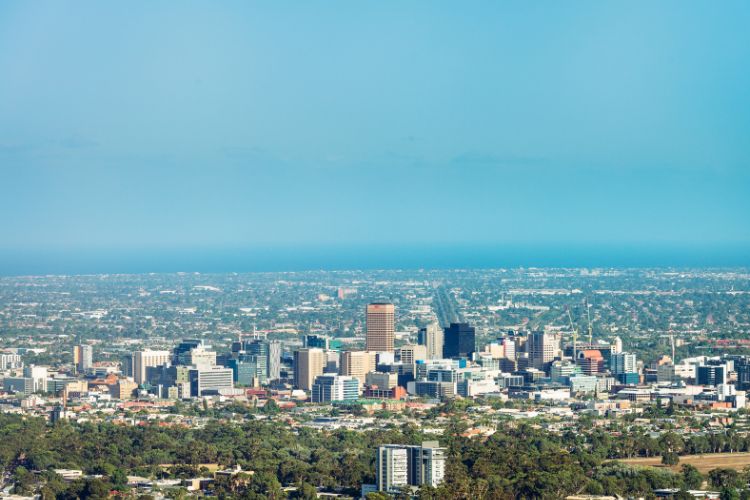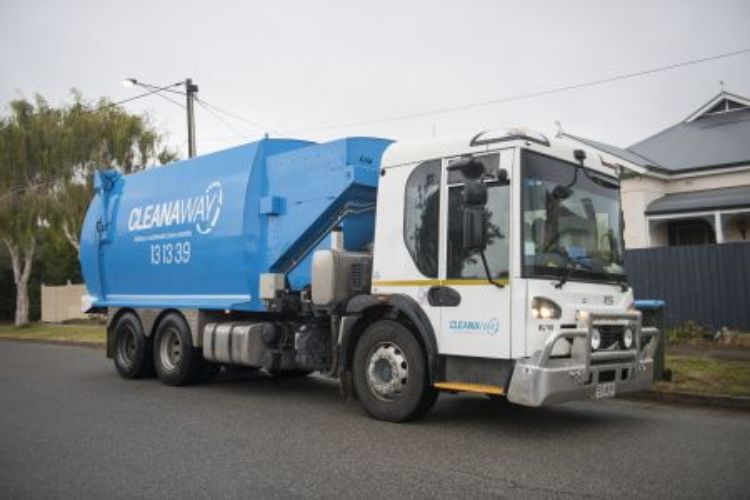Adelaide is one of Australia’s smaller cities but still a thriving, multicultural centre of excellence for business, the arts and tourism.
Efforts to be the first city in Australia to achieve “zero avoidable waste to landfill” are underway thanks to the city’s Resource Recovery Strategy and Action Plan 2020-2028.

How Much Waste is Produced in Adelaide Each Year?
Adelaideans generate around 1.2 million tonnes of waste every year, with only 35% being recycled.
This is despite Adelaide offering plenty of support for residents regarding kerbside collection and opportunities for other support, such as skip bin hire.
How Much of This Waste is Recycled?
Only 35% of the waste produced in Adelaide is recycled. This is quite a low figure, which the state government hopes will rise over the coming years.
Adelaide waste must be reduced as soon as possible, but the signs are that residents are taking the challenge seriously and making huge efforts to recycle more.
What Are The Most Common Items That Are Recycled?
In Adelaide, as in the rest of Australia, the most commonly recycled materials are metals such as aluminium cans, paper and cardboard.
Metal is an ideal material because it holds value, and people are more likely to try to recycle broken or worn-out items. Adelaide recycling depots are as busy as ever, and people are making more efforts to avoid landfill sites.
What are the most common items that are sent to landfills?
The most common items sent to landfills include food waste, plastics and textiles.
Food waste is a huge problem as when it decomposes, it produces methane, which contributes to global warming.
How Much Waste is Produced Per Person in Adelaide Each Year?
With a population of over 1.3 million people, it’s estimated that each person generates 1.2kg of rubbish daily.
This varies depending on lifestyle, but the figure is still very high.
How Does This Compare to Other Australian Cities?
Other cities compare quite poorly to these figures, but this could be partly because Adelaide is a much smaller city and contains far fewer retail outlets, especially in rural and suburban areas.
Because the population is much higher in Sydney and Melbourne, consumers have more opportunities to purchase food and other consumables.
What Initiatives Are in Place to Increase Recycling Rates?
Adelaide is quite forward-thinking when it comes to recycling and improving the environment.
Many support systems are in place for residents to easily manage their recycling efforts. In addition to this, Adelaide’s Resource Recovery Strategy and Action Plan 2020-2028 have set in place the beginnings of a circular economy that will hopefully be fully functioning by the end of 2028.
What Are The Challenges Associated With Waste Management in Adelaide?
There are many challenges associated with waste management in Adelaide.
Firstly, the sheer amount of waste that is sent to landfills via general refuse bins in homes needs to be drastically reduced.
Many residents do not realise that anything they put into the general waste bin automatically goes into a landfill.
Associated Costs
The costs associated with waste management are varied. For residents, it may be that they sometimes need more support than their council bin collection.
This will necessitate either a trip to the dump with associated charges or hiring a skip bin.
Hiring a skip bin in Adelaide is inexpensive, and Council Permits: Adelaide Council offers are not always needed.
A list of the best skip bin companies in Adelaide is a helpful tool for residents who may need more support with waste management. Skip bin hire is a very eco-friendly waste management solution.

Image credit: www.cityofpae.sa.gov.au
What Are The Environmental Impacts of Waste Management in Adelaide?
When managed well, with the best waste management technology and recycling methods, the environmental impacts of waste management are few.
Keeping waste out of landfills is a priority – landfill sites have a detrimental effect on the land, the air and the ecology of any area in which they’re situated.
Waste and Recycling Trends in Adelaide
When it comes to recycling trends, Adelaide is a trendsetter. Many businesses in Adelaide are tackling the recycling issue by using old garments and other textiles to produce new products.
In addition, state government grants for recycling innovation are well-funded.
What Can I Do About It?
Residents and business owners alike can change their lifestyles, which will impact Adelaide’s waste production.
We can take positive actions by using fewer plastic items, recycling carefully, and reusing and repairing things rather than purchasing new items.
In addition, we should ensure as little waste as possible goes into landfills and ask questions about everything we buy – how is it packaged? Can this packaging be recycled?
Final Thoughts and Key Takeaway
Like other Australian cities, Adelaide is taking its environmental responsibilities seriously.
Big changes are being made, and they’re being generously funded, too. If all individuals and businesses in Adelaide make serious efforts to reduce, reuse and recycle, the city will soon meet its target of becoming Australia’s first zero-waste city.
